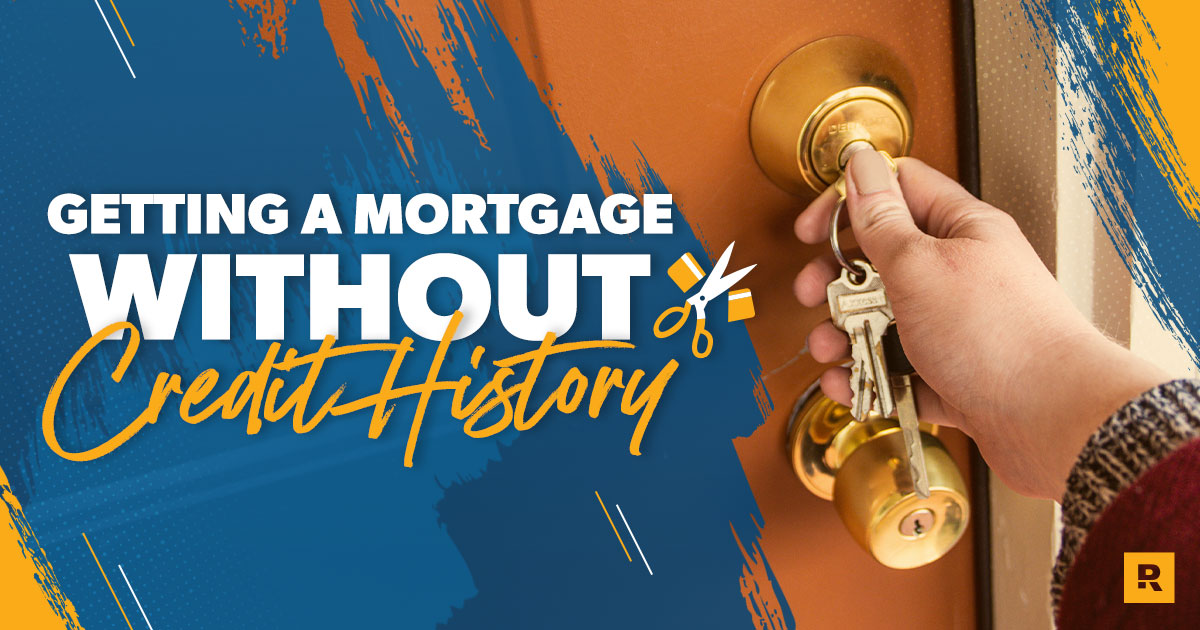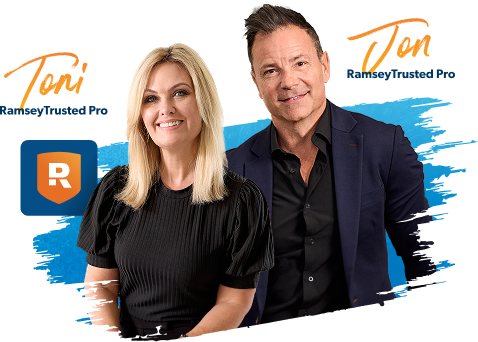Can You Buy a House With No Credit?
5 Min Read | Mar 21, 2025

One of the side effects—or side benefits—of becoming and living debt-free is that you eventually have a credit score of zero. If that’s you, congratulations! You’re unscorable, and because you’re invisible to credit sharks and credit bureaus, you face a unique challenge: How can you prove to a mortgage lender you’re a reliable borrower without a credit score?
It’s going to take a little more work—but don’t lose hope. You can get a mortgage without a credit score. It’s totally worth it. And we’re going to show you how.
How Can You Get a Mortgage Without a Credit Score?
While getting a mortgage without a credit score requires more paperwork, it’s not impossible. You just need to find a “no credit mortgage lender” who is willing to do something called manual underwriting—like our friends at Churchill Mortgage.
Manual underwriting is a hands-on investigation into your ability to repay debt. After all, you’re about to take on a mortgage, and your lender wants to know you can handle it.
Here are the steps to take to buy a house with no credit score:
1. Bring proof of payments.
The first hoop will be documentation—lots and lots of documentation. You’ll need to show verification of your income for the last 12–24 months, as well as a steady payment history for at least four regular monthly expenses. These expenses may include:
- Rent
- Utility bills not included in your rent payments
- Phone, cell phone or cable bills
- Insurance premium payments
- Childcare or school tuition payments
The more evidence you can provide of your on-time payment history, the higher your chances of qualifying for your mortgage.
2. Have a big down payment.
Normally, we recommend a down payment of at least 10–20% of the home price. But if you have no credit score, aim for 20% or more since it reduces the lender’s risk and demonstrates your ability to handle money responsibly.
Buy or Sell Your Home This Spring With Confidence
Now is a great time to buy or sell your home. Get ahead of the competition with help from a pro who’ll fight for you to get the best deal.
3. Choose a 15-year fixed-rate conventional mortgage.
No FHAs. No subprimes. Nothing but a good ol’ 15-year fixed-rate conventional mortgage. And make sure your monthly mortgage payments are no more than 25% of your monthly take-home pay—including principal, interest, property taxes, home insurance, private mortgage insurance (PMI) and don’t forget to consider homeowners association (HOA) fees. That will keep you from being house poor! This is the only mortgage we ever recommend at Ramsey since it has the overall lowest total cost.
What Exactly Is a Credit Score?
A credit score is a three-digit number that measures how well you repay debt. In a nutshell, a credit score is an "I love debt" score. It says you’ve had debt in the past, and you’ve been tremendous, moderate or awful at paying it back.
Three major credit bureaus—TransUnion, Experian and Equifax—use credit-scoring models, like VantageScore and FICO, to come up with a score that ranges from 300–850.
Dave Ramsey recommends one mortgage company. This one!
But trust us on this—a credit score is not proof of winning financially. Sure, you’ll meet plenty of folks who brag about their credit score like it’s some kind of pick-up line ("on FICO scale, I’m an 850"). Don’t be fooled. A credit score doesn’t measure your wealth, income or employment status—it measures your debt.
Credit scores are calculated using five differently weighted debt categories:
|
Debt history |
35% |
|
Debt amount |
30% |
|
Time in debt |
15% |
|
New debt |
10% |
|
Type of debt |
10%1 |
What’s the Difference Between No Credit and Low Credit?
The quick answer is: Having no credit score is good, while a low credit score is bad.
- No credit score: This means you’ve avoided debt. We celebrate this at Ramsey because debt is dumb. If you’ve achieved no credit score, congrats! And remember, you can still buy a house with no credit score if you work with a lender who does manual underwriting.
- Low credit (bad credit): This means you’ve probably made big money mistakes in the past: You’ve filed bankruptcy, defaulted on a house, or racked up a ton of credit card debt that you haven’t been able to repay. A low credit score will make it harder for you to find a lender who is willing to give you a mortgage.
If you have a low credit score, pay off all your debt, don’t miss any bills, and wait until your credit score disappears before trying to buy a house. It’ll be much easier for you to get a mortgage with no credit score than a low one—trust us.
Your Guide to Finding an Affordable Home You Love
Learn our simple, step-by-step process to make closing on the right home for you easier and less stressful.
Other Mortgage Options for No Credit or Low Credit
When you have no credit or less than stellar credit, lenders will often try talking you into an FHA loan. But don’t fall for it. An FHA loan is a total rip-off—it’s way more expensive than a conventional mortgage.
FHA loans were designed by the government to make purchasing a home easier for first-time home buyers or folks who can’t easily qualify for a conventional mortgage.
Let’s take a closer look at the pros and cons:
Pros
The qualifications on an FHA loan are low—so low, in fact, that if you have no credit history (or a low credit score) and at least a 3.5% down payment, you’ll more than likely qualify.
Cons
On the surface, FHA loans seem harmless. What could be wrong with a loan program designed to help first-time home buyers buy homes? But underneath the low-entry requirements is a loan that loads you up with massive interest fees and extra mortgage insurance payments that make you pay higher long-term costs.
So stick with a 15-year fixed-rate conventional loan!
Work With a RamseyTrusted Mortgage Company
If you have no credit score and don’t want any hassle while getting a mortgage, work with our friends at Churchill Mortgage who are experts at doing manual underwriting. Churchill Mortgage is full of RamseyTrusted mortgage specialists who actually believe in helping you achieve debt-free homeownership.
Next Steps
- Download EveryDollar to track your income and down payment savings progress.
- Get your pay stubs from the last 12–24 months and your bill payment history from the last four months.
- Find a mortgage lender who is willing to perform manual underwriting.
Did you find this article helpful? Share it!

We Hear You!
We’re considering adding the ability to save articles to your Ramsey account.




